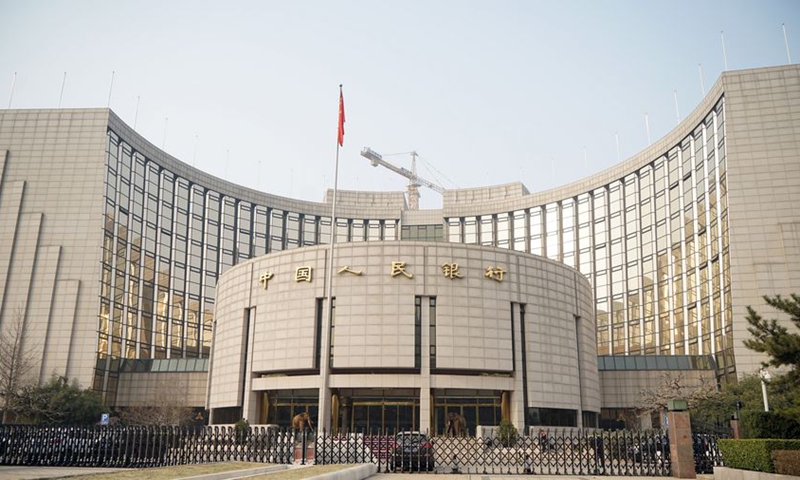Financial stability guarantee fund offers double protection against systemic risks: central bank official

Photo shows the headquarters of the People's Bank of China. File photo: Xinhua
China's financial risks are diminishing and controllable, a central bank official said on Thursday, noting that the newly introduced financial stability guarantee fund will work in a coordinated manner with existing safeguards such as the deposit insurance fund and will be used at the discretion of the central government.
Describing the financial stability guarantee fund, which was part of draft financial stability legislation unveiled earlier in April, Sun Tianqi, head of the People's Bank of China (PBC) Financial Stability Bureau, said it is preemptive and a necessary step in tackling major financial risks.
The fund will be used at the discretion of the central government and work in a double-layer mechanism and coordinated manner with the deposit insurance fund and other existing safeguards to protect the country's financial stability and security, Sun said at a PBC press conference.
China unveiled draft financial stability legislation seeking public input on April 6.
Regarding the property sector, Zou Lan, head of the Financial Market Department, said banks in over 100 cities nationwide had of their own accord lowered housing mortgage rates by an average of 20-60 basis points since March as demand softened.
The central bank has actively guided banks to meet reasonable financing needs from real estate developers following a rise in debt woes at Evergrande, a major developer. In the first quarter, an average monthly increase of 150 billion yuan ($23.54 billion) was lent to real estate developers with outstanding loans at a relatively high level compared with the scale of new homes under construction.
Zou said financial institutions should reasonably and flexibly extend deadlines for housing mortgage payments from borrowers affected by the epidemic.
Zou noted that records in 2020 showed that borrowers were quick to repay their loans once the epidemic's impact was alleviated.
The PBC also said it will launch a relending quota worth 200 billion yuan with an interest rate of 1.75 percent, to support innovative technology companies and industrial champions.
Another tranche of 40-billion-yuan worth of relending quota is slated for pilot scheme elderly care programs in five provinces in East and Central China.

